Tucked away in the landscapes of Vietnam lies a majestic natural wonder waiting to be explored – the highest mountain in Vietnam. Standing tall and proud, this towering peak offers a glimpse into the stunning beauty of Mother Nature at its finest. With its snow-capped summit glistening under the sun, the highest mountain in Vietnam beckons adventurers and nature enthusiasts alike to embark on an unforgettable journey to its lofty heights. Join me as we delve into the allure and mystery of this iconic landmark, where every step taken is a step closer to reaching new heights both physically and spiritually.
[toc]About Fansipan Mountain
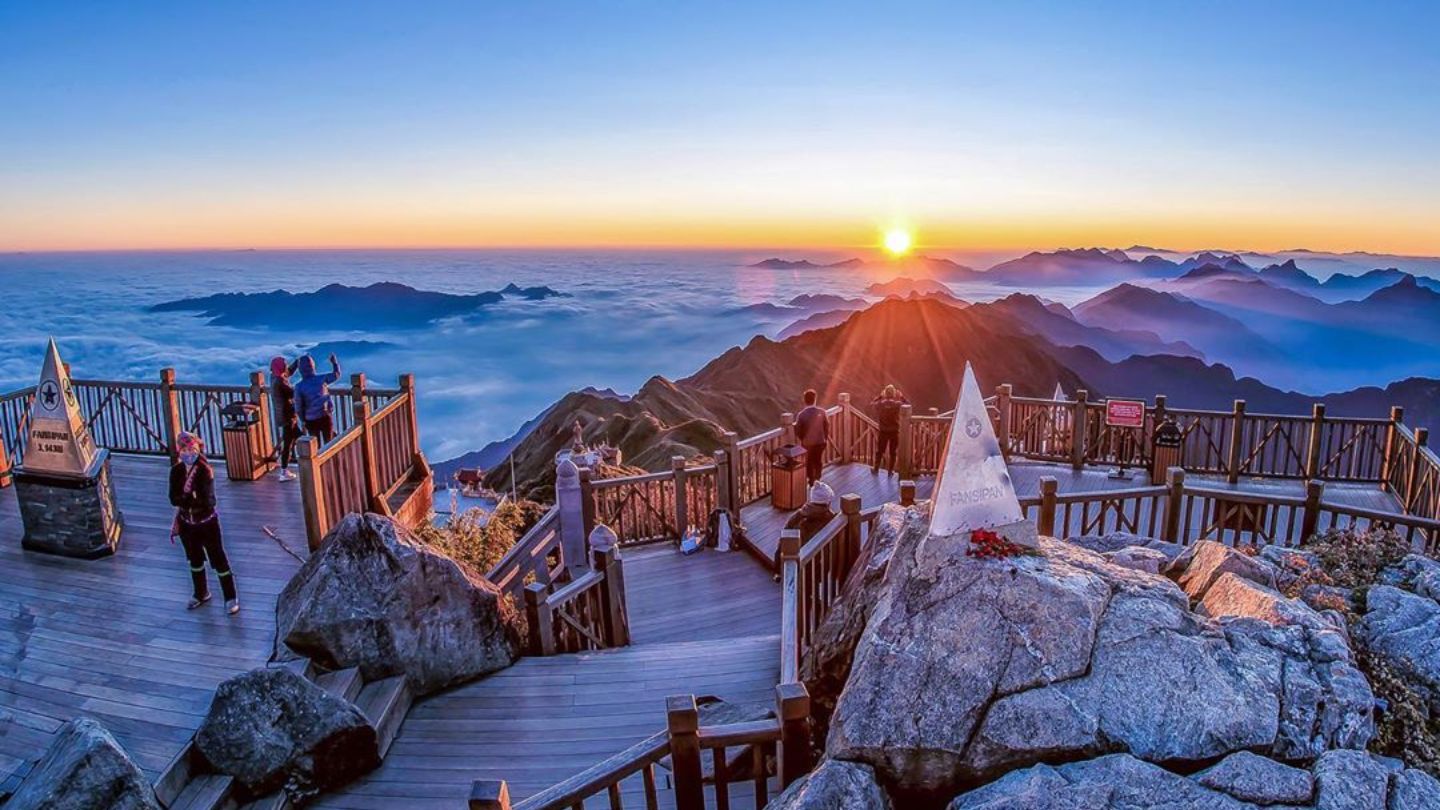
Location: Fansipan Mountain, the highest mountain in Vietnam, sits within the Hoang Lien Son Mountain Range, just 9 kilometers southwest of Sapa Town in Lao Cai Province, Northwestern Vietnam. Standing tall at 3,143 meters above sea level, Fansipan proudly claims the title of the highest peak in both Vietnam and Indochina.
Weather: At the mountain top, it can get super cold, reaching freezing temps. In winter, it’s about 4-6 degrees Celsius, while in summer it’s 15-20 degrees Celsius. This mountain is a hub for unique plants and animals you won’t find anywhere else.
How to Get to the Highest Mountain in Vietnam?
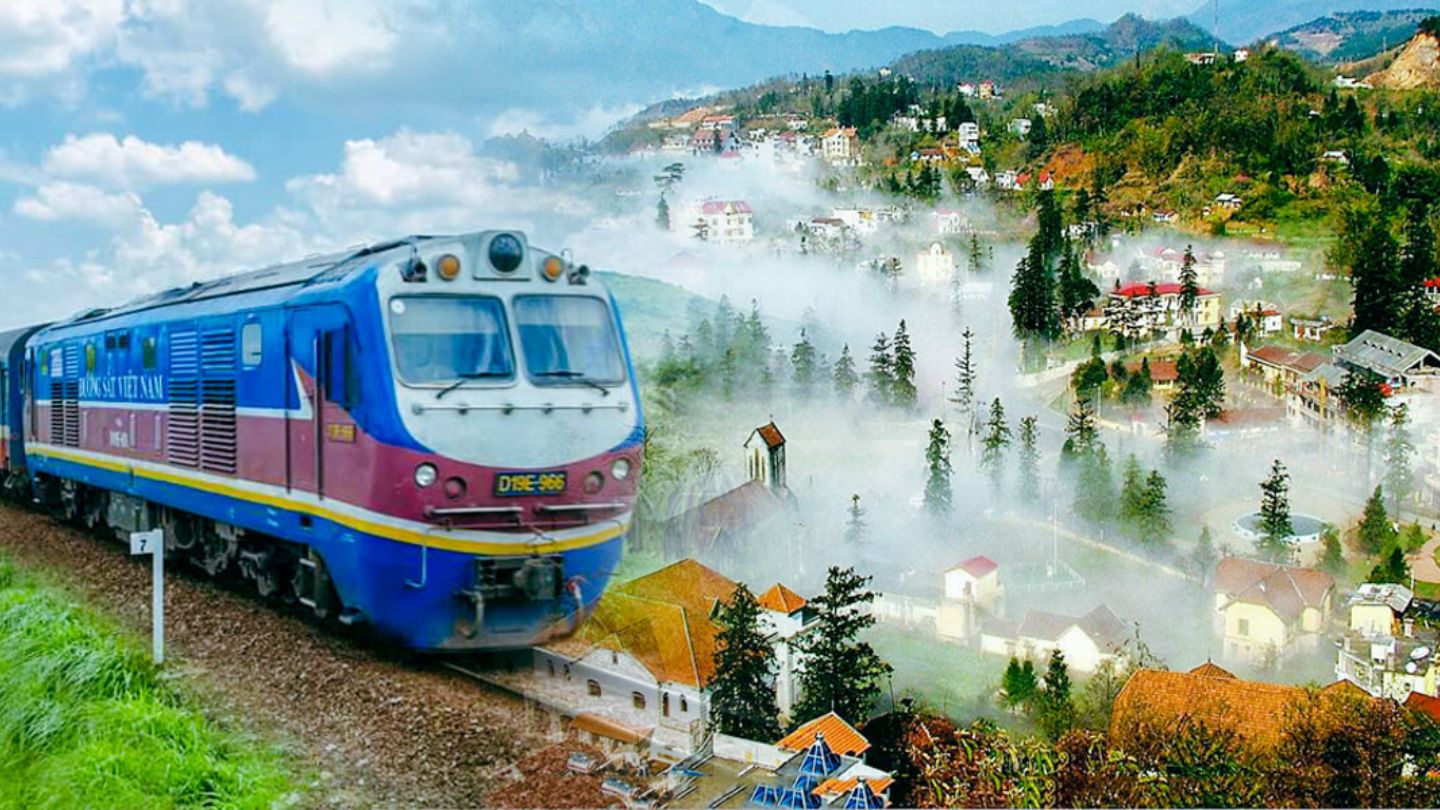
You can reach this iconic destination by either hiking or taking a cable car. Dive into our post about how to get to Fansipan Mountain to discover the details of both options, including trail information, ticket prices, and insider tips for making the most of your visit to Vietnam’s highest peak.
Special Things About Fansipan Mountain All Year Round

Fansipan Mountain’s allure transcends the confines of any particular season, offering a spectacle for every visitor.
- In spring, the highest mountain in Vietnam is shrouded in an ethereal mist, cloaking it in an air of mystique. The emergence of cherry blossoms and plum blossoms infuse a hint of Japanese elegance into the landscape, creating a scene that is both enchanting and tranquil.
- As summer arrives, the vibrant red hues of climbing roses take center stage, replacing the delicate cherry blossoms. These cascading blooms adorn fences and rooftops along winding roads, painting a picture of natural beauty that captivates all who behold it.
- In autumn, Fansipan’s allure is heightened by drifting clouds, casting an enchanting spell over the landscape. Gazing from the summit, one is treated to a mesmerizing view of clouds cascading below, occasionally parting to unveil the picturesque scenery of Sapa.
- Winter transforms Fansipan into a wonderland as temperatures plummet. Despite the cold, days when the mercury dips below -9 degrees Celsius offer a captivating spectacle of the mountain cloaked in sparkling snow.
Must-Try Activities When Coming to The Fansipan
Step into the world of Fansipan! Let’s dive into the array of must-try activities, promising adventure, stunning scenery, and cherished memories.
Explore a complex of spiritually significant sites
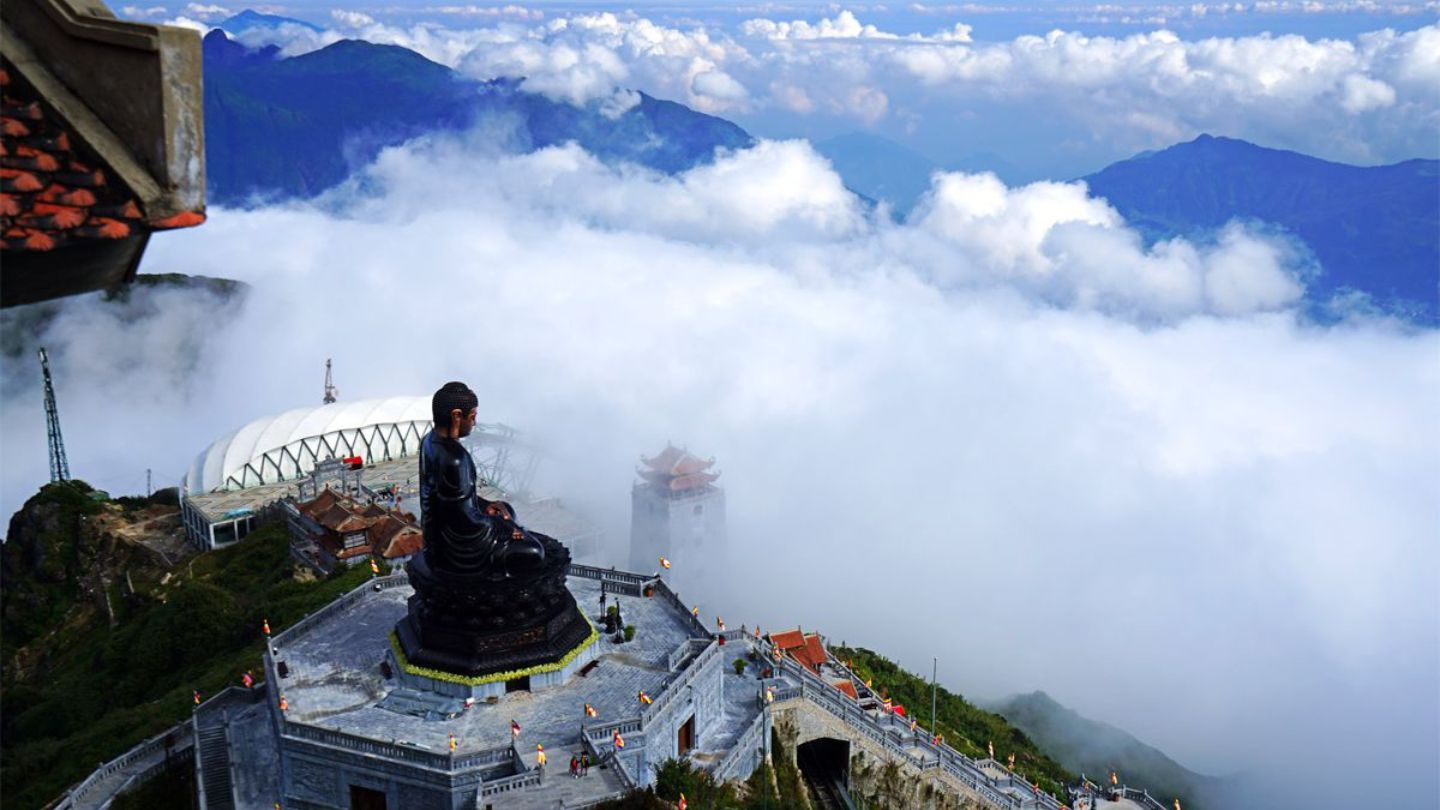
Fansipan Mountain stands not only as a breathtaking natural marvel but also as a site of profound cultural and spiritual significance within Vietnam. Among its notable spiritual attractions are:
- Thanh Van Dac Lo: Situated atop Fansipan, this spiritual site features four monolithic marble pillars, drawing inspiration from the architectural style of the Ly Dynasty. From here, visitors can marvel at the expansive surrounding landscape.
- The Stupa: The eleven-story Stupa at Fansipan Mountain is built of stone and includes a copper lotus-shaped finial. The Stupa is a prominent religious icon in Sapa and has strong Buddhist connotations.
- The Great Buddha Statue: At 21 meters tall, this bronze Buddha statue graces the summit, facing southward to oversee the splendid vistas of Sapa.
- Bich Van Zen Monastery: Nestled near the Great Buddha Statue, this serene Buddhist monastery offers a tranquil space for meditation and appreciation of its unique architecture.
These spiritual landmarks not only enrich the spiritual journey of visitors but also offer insight into the deep-rooted cultural heritage that permeates Fansipan Mountain.
Go on funicular rides in Muong Hoa
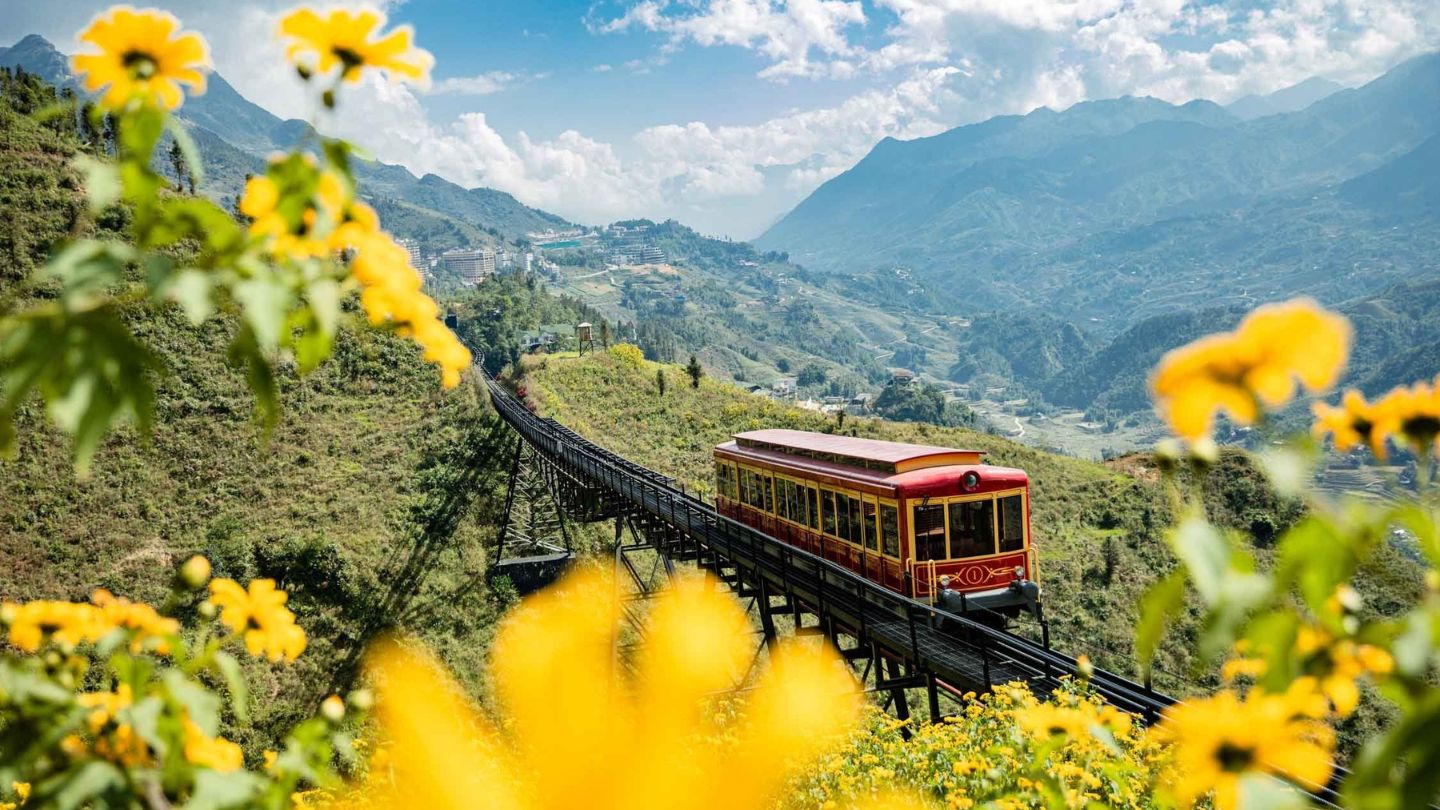
One of the delightful experiences awaiting you at Fansipan Mountain is a ride on the Muong Hoa funicular. This charming little railway will whisk you away on a delightful 6-minute journey from Sapa Town to the Fansipan cable car station. The engineers behind this marvel have truly outdone themselves, incorporating cutting-edge technology and top-notch safety features. During your ascent, be prepared to feast your eyes on breathtaking vistas of the picturesque landscapes below, including the serene Muong Hoa Valley, quaint villages, and lush terraced rice fields.
Have an Unforgettable Hike to Mount Fansipan Vietnam
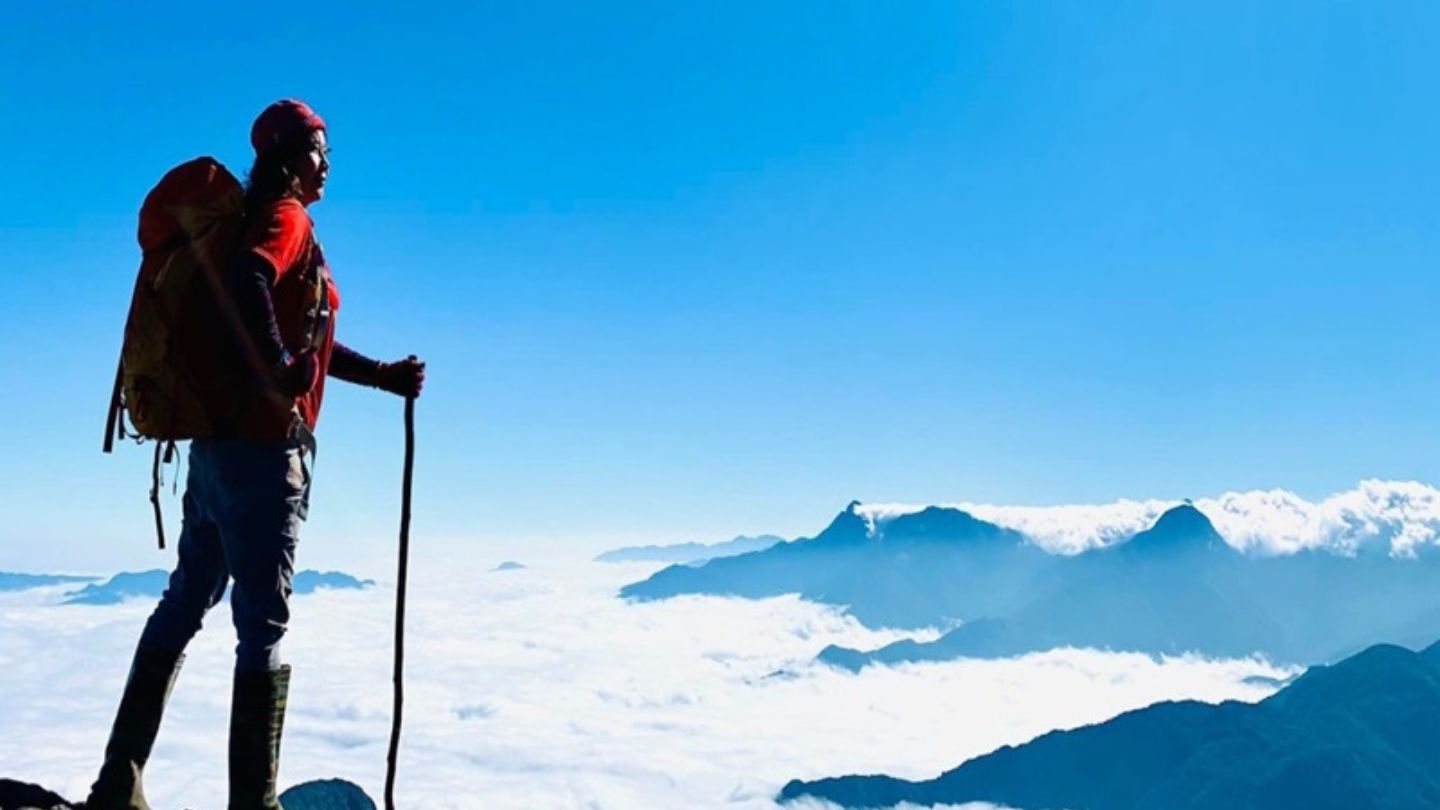
Embarking on a trek up the highest mountain in Vietnam promises a truly unforgettable experience, rich with natural wonders and cultural significance. Traversing through verdant forests, terraced rice fields, and quaint villages, hikers are treated to awe-inspiring vistas at every turn. Upon reaching the summit, a profound sense of accomplishment awaits as you stand atop Vietnam’s highest peak, gazing out over the majestic Hoang Lien Son Mountain Range.
Capture Beautiful Pictures at the Fansipan Summit
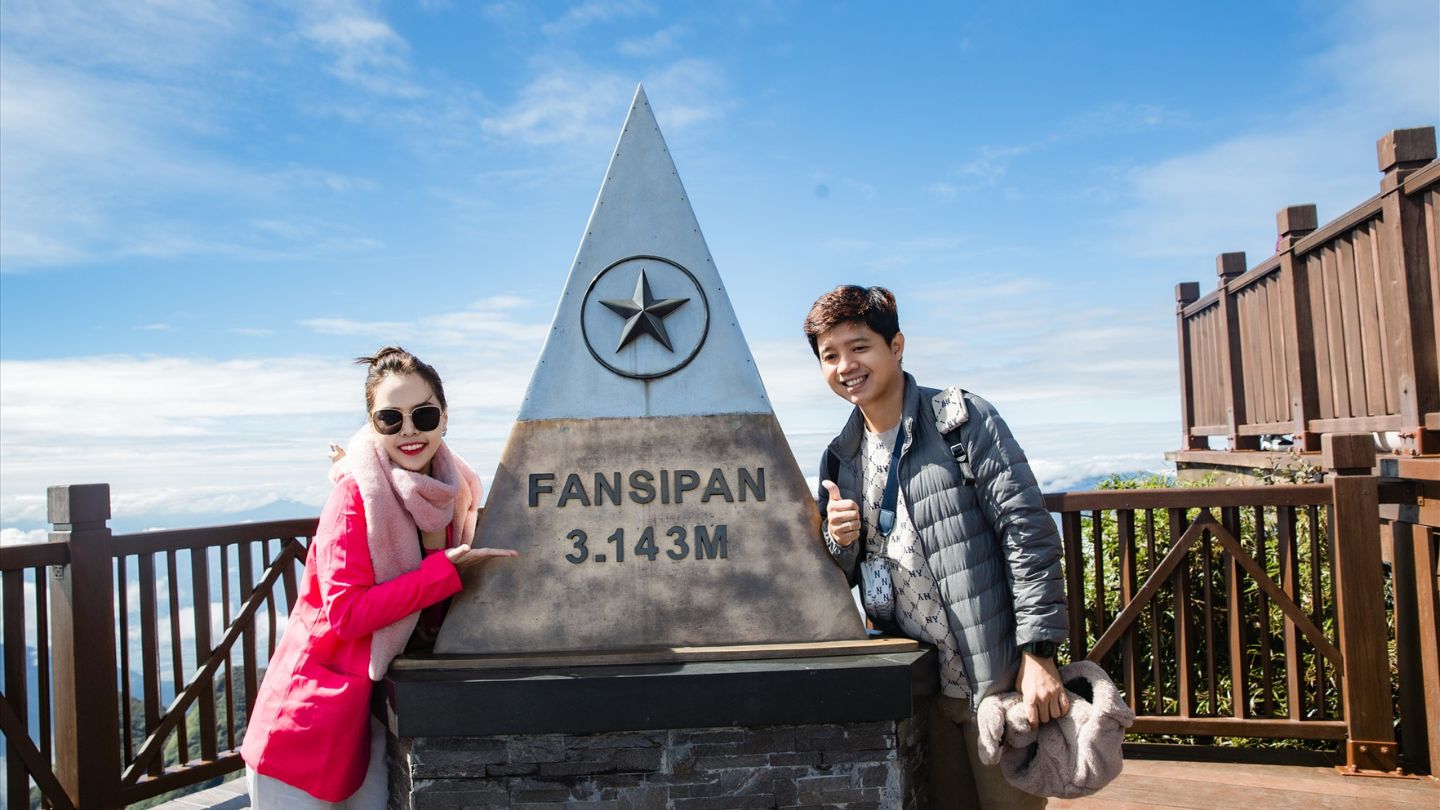
For many travelers, snapping a selfie atop the Fansipan summit is an essential part of the journey. As the tallest peak in Indochina, reaching this summit is a notable accomplishment worthy of commemoration. With sweeping vistas of surrounding mountains and valleys, it’s an ideal backdrop for a cherished photo.
Tips To Get To The Highest Mountain In Vietnam
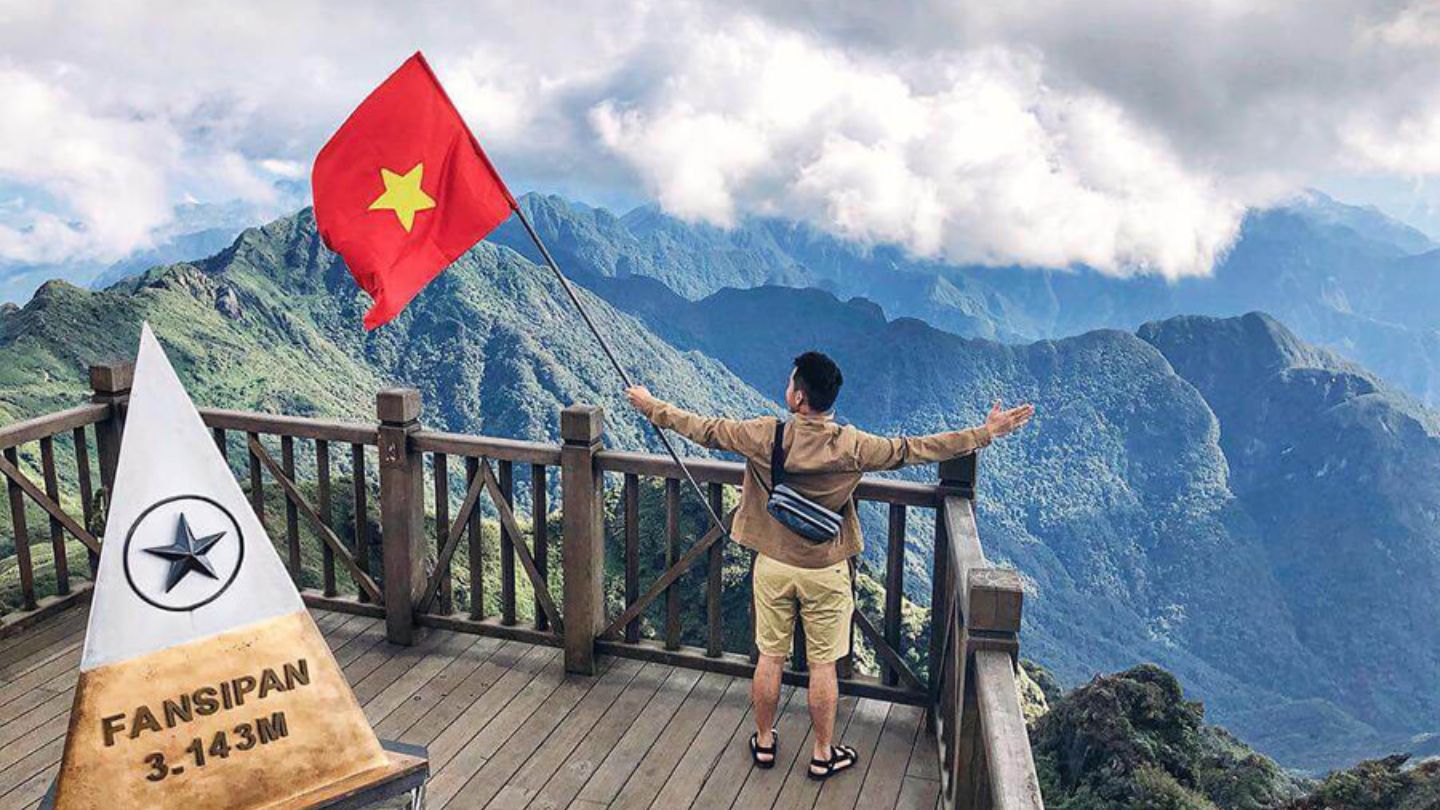
Heading to Vietnam’s highest mountain? Check out these essential tips to make the most of your trek and enjoy the breathtaking views.
- Plan ahead: Research trails, weather conditions, and necessary permits before embarking on your journey to the highest mountain in Vietnam.
- Choose the right time: Consider visiting during the dry season mid-September to mid-December, and from mid-March to mid-May for clearer skies and better hiking conditions.
- Get in shape: Prepare physically for the challenging trek by building stamina and endurance through regular exercise.
- Pack wisely: Bring essential items like water, snacks, sturdy hiking boots, layers of clothing, sunscreen, and a first-aid kit.
- Acclimatize: Take your time to adjust to the altitude, especially if coming from lower elevations, to prevent altitude sickness.
- Hire a guide: Consider hiring a local guide for navigation, and safety, and to learn about the area’s history and culture.
- Stay hydrated and fueled: Drink plenty of water and eat nutritious snacks to maintain energy levels throughout the hike.
Conclusion
Finally, the highest mountain in Vietnam serves as a majestic symbol of nature’s grandeur and beauty. Its tall top provides a stunning view of the surrounding region, highlighting the country’s varied terrain and wildlife. Climbing Vietnam’s tallest peak is more than simply a physical challenge; it is also a spiritual adventure that unites us with the awe-inspiring force of nature. Embrace the adventure and discover the wonders of Vietnam’s tallest mountain today!
FAQs
How tall is the highest mountain in Vietnam?
The highest mountain in Vietnam is Fansipan, standing at an impressive 3,147 meters (10,326 feet) above sea level.
Are there any guided tours available for climbing Fansipan?
Yes, several tour companies offer guided treks to the summit of Fansipan with experienced guides who can help you navigate the challenging terrain.
Is it necessary to be physically fit to climb Fansipan?
While climbing Fansipan is a challenging endeavor, it is not necessary to be a professional athlete. However, a good level of fitness and stamina will make the trek more enjoyable.
